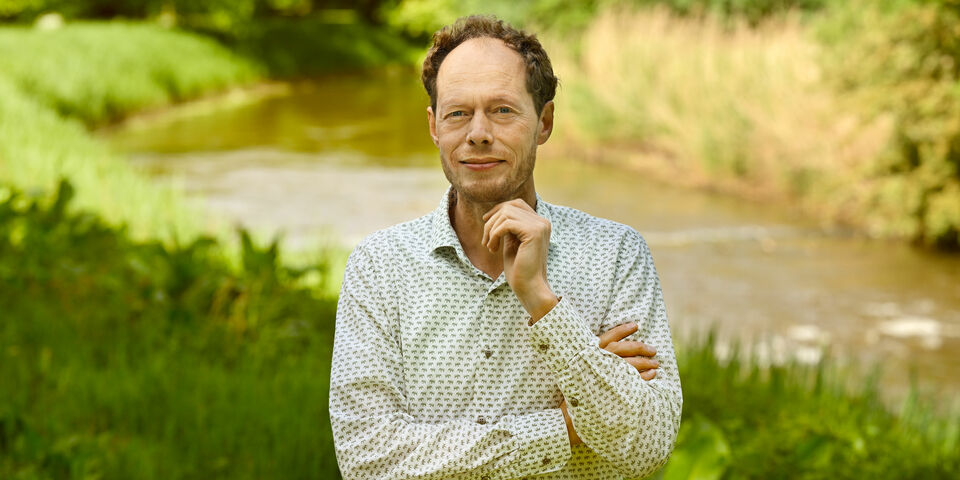Eindhoven by the sea
For Pieter Pauw, a water sports enthusiast from North Holland, it remains a strange experience: this city without any real body of water. Sure, the Dommel gently meanders through Eindhoven and along the campus, but it’s not navigable. The Wilhelmina Canal does allow for freight transport, though only for small and shallow cargo ships.
Without dikes, 55 percent of the Netherlands would be under water—much more by the end of the century if global greenhouse gas emissions aren’t drastically reduced soon. And even then, Eindhoven won’t end up anywhere near the sea, since it currently sits about 20 meters above sea level.
At present, shipping accounts for roughly 3 percent of global greenhouse gas emissions—and those emissions continue to rise every year. This sector, too, will have to move toward net zero emissions, possibly as early as 2050. Since ships have a lifespan of several decades, the industry must begin investing in emission-free vessels now—or accept that ships and components may need to be decommissioned before the end of their operational life.
TU/e currently conducts little research for or about the maritime sector, even though both lecturers and students already have extensive experience in the high-tech sustainability of other forms of mobility. Think of batteries and fuel cells, the production, storage, and conversion of new fuels, power electronics, ICT applications—you name it.
I’m convinced that TU/e could play a much larger role in helping this nearly fossil-fuel-dependent sector combat climate change. I already see one bright spot: defying the geographic odds, the upcoming EnergyDays on Thursday, November 27, will focus on net zero shipping. Speakers will include experts from research institutes TNO and MARIN, TU Delft, shipbuilder Damen, the Royal Association of Netherlands Shipowners, and TU/e itself.
The urgent need for rapid and radical innovation presents even greater opportunities for TU/e. So let’s turn it around: if the sea won’t come to Eindhoven, then Eindhoven will go to the sea.
Pieter Pauw is assistant professor in the Technology, Innovation and Society group. The views expressed in this column are his own.
This article was translated using AI-assisted tools and reviewed by an editor.


Discussion